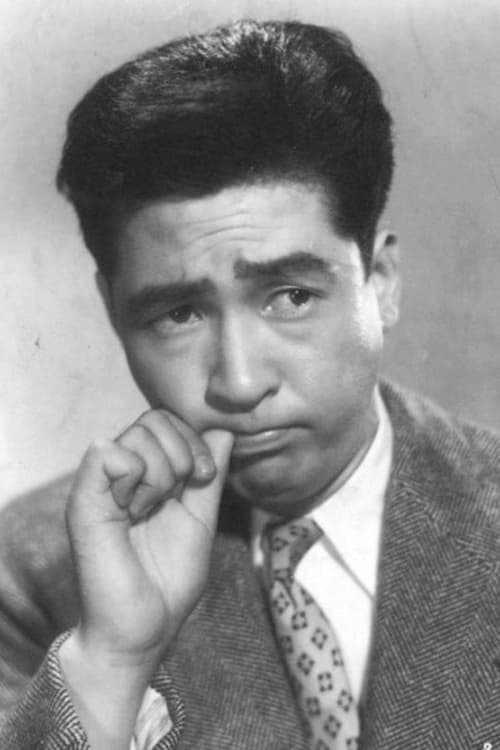
Narrator
August 1945. In a converted theological seminary on the outskirts of Nagasaki, a young doctor works to help his patients, as unsettling news comes of a new weapon used by the Americans on the city of Hiroshima. When the second nuclear weapon is dropped on Nagasaki, the hospital staff must work to save lives in the midst of the concentric circles of death that their city has become.
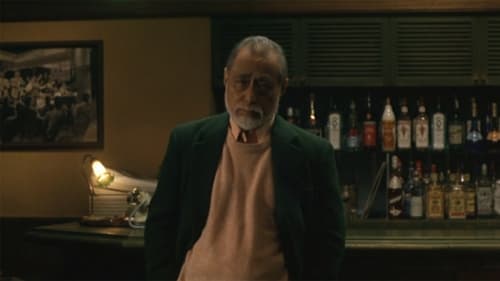
平松
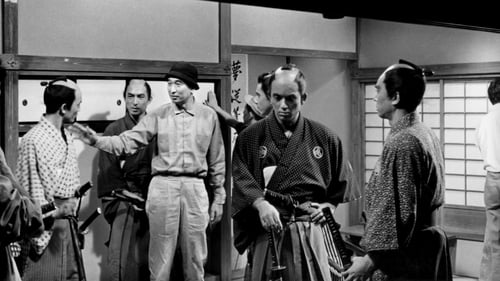
Self
Documentary made by Toho for the Masterworks reissue of all of its Kurosawa films. This one focuses on "Sanjuro" (1962).

Self
Documentary made by Toho for the Masterworks reissue of all of its Kurosawa films. This one focuses on "The Hidden Fortress" (1958).

Inspector Muta
A woman is discovered strangled inside a car, and Inspector Muta of the Yamashita police station hurries to the scene! The relationship between the murdered woman and a suspect whom the new Assistant Inspector, Iwaki, has been pursuing for one year will soon become clear...

Kenshiro Ooi
Veteran filmmaker Nobuhiko Obayashi rounds out the second of his two trilogies about his hometown of Onomichi with this film about the budding relationship between a young lad and an eccentric old man. Fifth-grader Yuta (Takuro Atsugi) is a typical city child looking forward to a summer of reading comic books and playing video games. Instead, he is bundled off to his grandparent's house on the Inland Sea. His grandfather, Yuta's parents explain, has been acting strangely as of late -- he eats the offerings in the family altar and once tried to lead attendants at a funeral in a rousing round of calisthenics. Since his mother and father are swamped with work, and his elder sister (Nana Sano) is studying for college entrance exams, Yuta has been asked to look after Grandpa. The old man takes Yuta on a tour of Onomichi, regaling him with 70 years of its history. Along the way, Grandpa slips in and out of the past, increasingly unable to discern between the two.

An attorney from Yokohama is found murdered at Lake Toya in Hokkaido. Uematsu (Noi Yasuo), of the Hokkaido police goes to Yokohama in search of Konno Shizuka (Watanabe Azusa), a woman who may know something about the case. He tries to take her in to the station for questioning. Muta (Kobayashi Keiju) happens to be there as well. Muta learns that Konno has a debt with a moneylender in Hokkaido.

Kamijo
Mitsu works in a factory and has a crush on Tsutomu, a young man she met on the Tokyo streets. One day the two go out, and after some deception, Tsutomu manages to have his way with her. Coming from a broken home, he is frightened by love, so he cruelly allows her to wake up alone. A month passes and a more grown-up Tsutomu returns. The lovers joyously reunite and move in together. All is blissful until both notice a strange sore on Mitsu's arm. The doctors diagnose it as leprosy. Without telling Tsutomu, Mitsu checks into a leper sanitarium. Hanging out with society's pariahs gives her much insight. She discovers the old lepers to be wonderful people. In turn, Mitsu becomes their source of joy and renewed hope. Still, she misses her Tsutomu. One day, the doctors inform her that they erred and that the sore is not leprosy. Happily she heads back to her true love until she realizes with a guilty pang that to return to him would mean unhappiness for her newfound friends
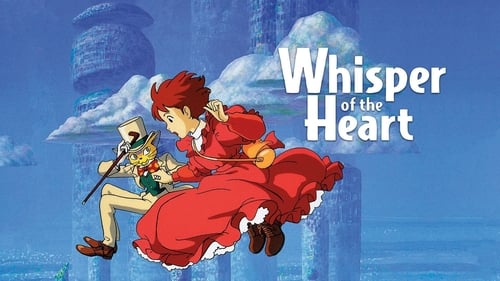
Shiro Nishi (voice)
Shizuku lives a simple life, dominated by her love for stories and writing. One day she notices that all the library books she has have been previously checked out by the same person: 'Seiji Amasawa'.
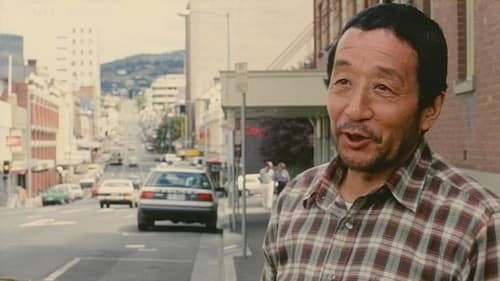
Eiji Kawano (Kunie Tanaka) has recently broken from the Japanese company he used to work for. As an immigrant to Tasmania, he has been won over by the island's immense natural beauty, and he is conscience-bound to oppose his former employer's ecologically unsound practices. He is also estranged from his grown son, who still resides in Japan. When his son comes to Tasmania for a visit, he must face the challenge of renewing their relationship.

Jigoro inokuma
Yawara Inokuma is a girl who aspires to an ordinary life but due to her innate talent is forced to practice judo by her authoritarian grandfather, Jigorou Inokuma, with the aim of achieving the championship in Japan and the gold medal in the Barcelona 1992 Olympic Games. Because of the pressure from her grandfather she has a generally bad attitude about judo, avoiding it as much as she can. However, over time she comes to understand why her grandfather loves judo and appreciates it more.
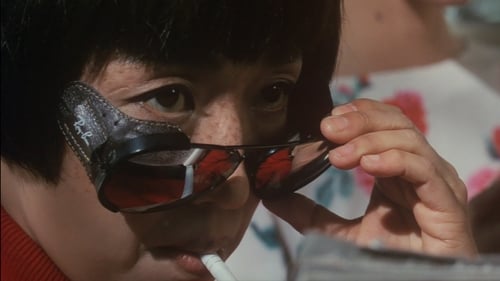
Ryoko's Boss
Intrepid tax investigator Ryoko Itakura sets her sights on the mysterious and philandering Hideki Gondo, a suspected millionaire and proprietor of a thriving chain of seedy hourly hotels, who has for years succeeded at hiding the true extent of his assets from the Japanese authorities. Itakura and Gondo soon find themselves engaged in a complicated, satirical battle of wits.

Etsuko, a female college student, tries to beat the con artists at their own game after she gets scammed one after another.
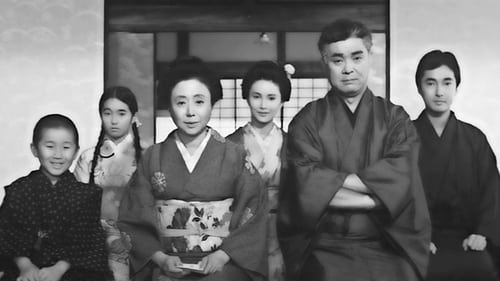
Hatsu-rojin
Haru, an aging scriptwriter, has isolated himself somewhere in the woods of Nagano to work on his first novel. As the last surviving member of his kin, he intends to chronicle the family he grew up in.

Mihara
Two TV salarymen uphold their duty by taking on a rival talent agency during the late-'80s bubble economy.

Prime Minister Mitamura
Originally released in Japan as "The Return of Godzilla" in 1984, this is the heavily re-edited, re-titled "Godzilla 1985". Adding in new footage of Raymond Burr, this 16th Godzilla film ignores all previous sequels and serves as a direct follow-up to the 1956 "Godzilla King of the Monsters", which also featured scenes with Burr edited into 1954's "Godzilla". This film restores the darker tone of the original, as we witness the nuclear destruction of giant lizard terrorizing Japan.

Prime Minister Seiki Mitamura
After a fishing boat is attacked, the sole surviving crew member realizes it is none other than a resurrected Godzilla. However, efforts to bring the story to light are suppressed by the Japanese government amid growing political tensions between the United States and the Soviet Union, who are both willing to bomb Japan to stop the monster.

Murder case.

Isoroku Yamamoto
A lavish retelling of the true story of the final voyage and ultimate destruction and sinking of the battleship Yamato, Japan's greatest flagship during the Second World War.

Keisuke Uemura
Kobasashi was learning Spanish so that she could go to Spain to look for her father who had left the family. She fell in love with her language teacher Ken. Finally she found her father in Madrid and she also met Ken's ex-girl friend Taeko there. Ken came to Madrid and learned of their meeting. He wanted her to help to look for Taeko. Ken was caught in between the past and the present.

A family murder case that occurred in Hita City, Oita Prefecture. A murderer whose statute of limitations is about to expire is shown on TV, and detective Kiyoshi Atsumi heads to Tokyo, but... The upstart Keiju Kobayashi, his old friend Etsuko Ichihara, and Atsumi. The postwar experiences of three people who were tossed about by the war overlap. The screenplay by Satoru Hayasaka, the music by Kousuke Kanno, and above all, the performances of Atsumi and Ichihara make this a masterpiece in the history of TV dramas. A two-hour version was later created as an art festival award-winning work.
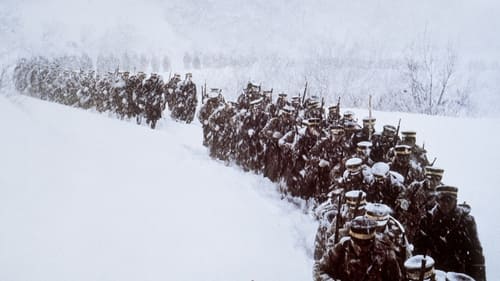
Two infantry regiments of the Imperial Japanese Army—210 men overall—tackled Mt. Hakkoda in the winter of 1902 to prepare for war with Russia.
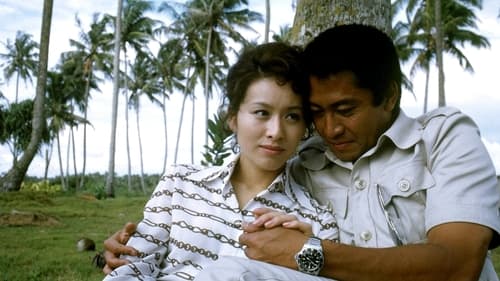
A Japanese businessman is sent to Sri Lanka and meets a beautiful Japanese woman with a past. They befriend an old Japanese-Indian widow who has an estranged son in Japan.
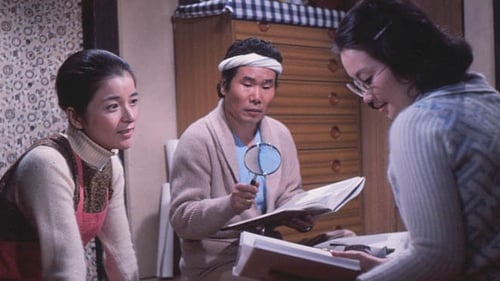
Tora-san is inspired to pursue an education after a visit to the grave of a woman he met years ago. When he returns to Shibamata with the intent to study, he falls for Toraya's new tenant instead.
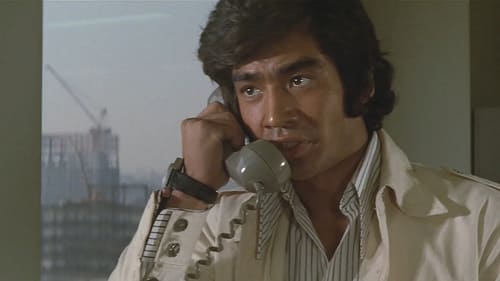
Dr. Tadokoro
A team of geophysicists investigating seismic activity on the seafloor discover that the islands of Japan, after suffering from massive volcanic eruptions and earthquakes, will be pulled into the ocean, killing millions.

Takashi Sugimoto
Tells of the feelings and sufferings of a young girl with an incurable paralytic disease.
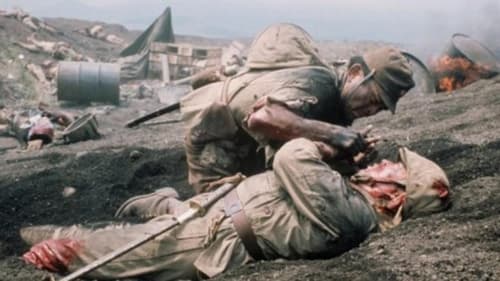
General Ushijima
The Americans are swiftly closing on Okinawa, an island just south of the Japanese mainland. The Imperial command sends top generals and several army divisions to defend it at all costs. The mission quickly degenerates as vital resources and troops are diverted to other islands. After a civilian evacuation ends in tragedy most of non-combatants are forced to remain on the island. Many convert to soldier status. Tokyo sends mixed messages that squander time and resources, as when they order the defenders to build an airstrip for aircraft that never come. The truth soon becomes obvious: the high command decides that the island cannot be held and effectively abandons the Okinawan defenders. When the Americans land many troops are deployed in the wrong places. As the slaughter mounts, a suicidal attitude takes hold. Okinawa becomes a death trap, for civilian volunteers and non-combatants as well.

Adaptation of the Shôji Yuki novel.
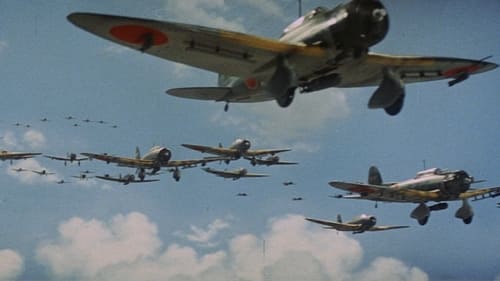
Premier Hideki Tojo
This tremendous blockbuster hit from 1970, showing the rise to power of Tojo Hideki, is perhaps the most important film to come out of Japan since the 7 Samurai! Interspersed with actual footage dating back to the 1930’s and throughout the Great Pacific War it shows in exciting detail the early successes and ultimate failure of the Japanese war machine. Never before has there been a chronicle of this magnitude about the war in the Pacific Theater of Operations, rivaling Saving Private Ryan with its intense battle scenes. With a brilliant cast featuring Kobayashi Keiju as Tojo, Yamamura So as former Prime Minister Yonai, Mifune Toshiro as Admiral Yamamoto, and Kayama Yuzo as an intrepid newspaper reporter whose articles detailing Japanese losing battles infuriates Tojo to the point of putting his life in danger! The final hour of this film features some of the most disturbing aspects of how the Japanese fought to save their nation and their honor!
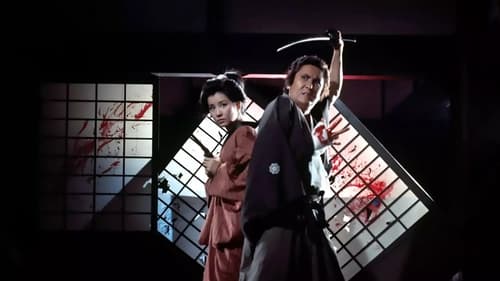
Yoshinosuke Saigo
The story of Ryoma Sakamoto, considered to be the architect behind the downfall of the Tokugawa shogunate. He was considered an outlaw by his own clan, hunted by his government, and was despised by supporters of the Shogun as well as the Loyalists for desiring the opening of Japan to the West in order to learn its technology, in the hopes of one day defeating the West with a modern army and navy.
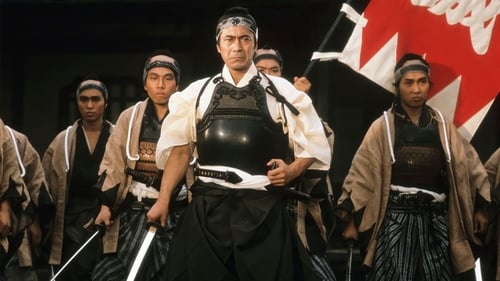
Toshizo Hijikata
Near the end of the nineteenth century, as the balance of power shifts from Shogunate towards the Emperor, Japan restlessly awaits the dawning of a new age. But not all are content...The Shinsengumi, a small army of samurai, farmers and peasants, band together to do battle against the tide of history. Their leader, Isami Kondo is a man who rises from farmer to fighter to head the fierce Shinsengumi brigade. Using a stern hand and a heart of gold, he rallies his men in defense of the tottering Shogunate. But bloodshed and treachery lurk around every corner.
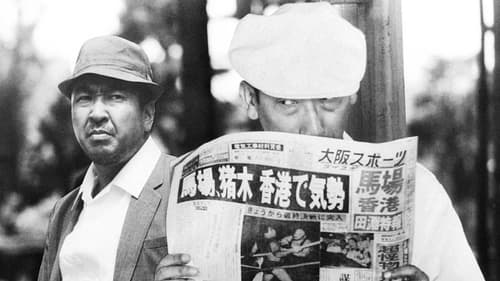
Tomizô Funakoshi
A crime story (with strong elements of comedy) that pits a determined detective against a gang of pickpockets in Osaka. The detective (played by Keiju Kobayashi) and the leader of the gang (played by Norihei Miki) have an interesting wartime backstory together that fuels much of the story.

A timid salaryman is the subject of this black comedy.

Junpei Namikawa
A story depicting the challenges faced by today's youth in working to build a better tomorrow, based on the theme of Toshiba's progress as one of Japan's leading manufacturers of electronic and electric goods.
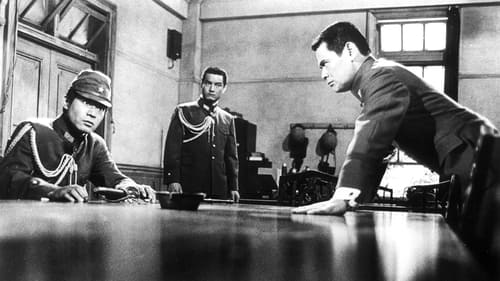
Chamberlain Yoshihiro Tokugawa
Following the detonation of the atomic bombs on Hiroshima and Nagasaki, the Japanese military and the government clash over the demand from the Allies for unconditional surrender. Minister of the Army Anami leads the military officers who propose to fight on, even to the death of every Japanese citizen. Emperor Hirohito, however, joins with his ministers in asking the unthinkable, the peaceful surrender of Japan. When the military plots a coup to overthrow the Emperor's civilian government, Anami must face the choice between his desires and loyalty to his Emperor.

A young ex-boxer has become a successful businessman, running his various enterprises with his best friend, another boxer whom he accidentally injured in a match. When the latter is found dead, he cannot believe it is suicide and decides to investigate. Sure enough, a group of gangsters is behind his death and, resenting his intrusion, try to ruin him and to pin the murder of his young friend's fiancee on him. At the last minute he shoots it out with the villains and emerges with his reputation intact.

Ooka (Umeko's husband)
Four sisters are all named after flowers. While the two youngest are married, the eldest two remain single, much to the annoyance of their long-suffering mother. The mother and her brother try various schemes to find husbands for them.

Isao Tashiro
Tashiro coincidentally meets his best friend Sugimoto in a bar very close to the apartment in which Sugimoto’s wayward wife is found dead. Although Tashiro is not a suspect in the police investigation, he is racked with guilt and confesses to his wife, Masako. In an effort to further relieve his tortured sense of guilt, he then confesses to Sugimoto. Neither his wife nor his friend can believe that he could have been involved.
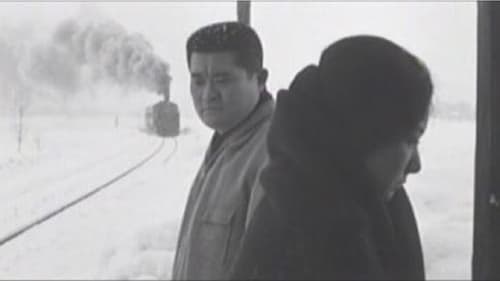
Young widow Ine is suffering under the harsh treatment of her mother in law. As a former Geisha, Ine had struggled to be accepted into the well-established Rokujo family from the beginning. With the support of Jiro, a young man Ine's late husband had saved from homelessness as a young boy, Ine tries to keep the family's heritage of silk processing alive. Their close relationship soon causes gossip among the villagers and threaten Ine's position in the family even further ...
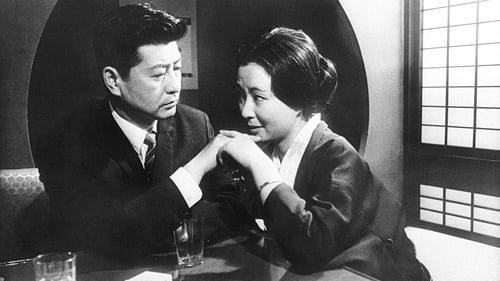
"When human beings venture too far along a trail made by wild beasts, it is said, they quite often discover themselves on a road of no return." Based on the novel of the same name by Seichô Matsumoto.

The 22nd film in the Shacho comedy series.
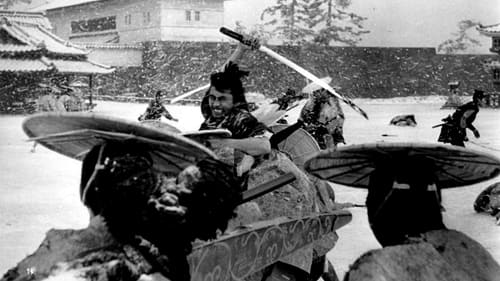
Einosuke Kurihara
Japan, 1860. The men of the Mito clan, victims of the Ansei purge, anxiously prowl around the Sakurada Gate of Edo Castle with the intention of assassinating Naosuke Ii of Hikone, tairō of the Tokugawa shogunate and responsible for their misfortune.

Could I But Live

Shûe Matsubayashi movie
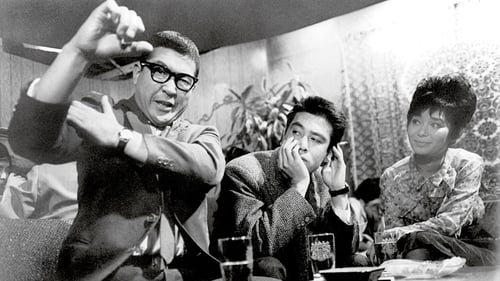
Eburi Toshimaru
A salaryman's drunken ravings in public attract the attention of journalists who coerce him into telling them his life's story.

A dark family secret sends a 21-year-old French student (Hoshi) on a journey of self-discovery.

Junpei Shishido
Story of a resourceful hobo (Kobayashi), a con woman (Takamine) who pretends to be a victim of the Nagasaki A-bomb, and two orphaned children who become a most atypical Japanese family.
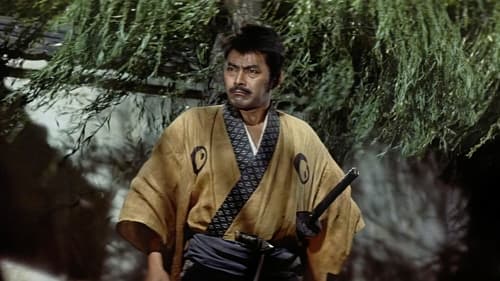
Awajinokami Wakisake (Lord Awaji)
The story tells of a group of samurai who were left leaderless (becoming ronin) after their daimyo (feudal lord) was forced to commit seppuku (ritual suicide) for assaulting a court official named Kira Yoshinaka, whose title was Kōzuke no suke. The ronin avenged their master's honor after patiently waiting and planning for over a year to kill Kira. In turn, the ronin were themselves forced to commit seppuku for committing the crime of murder.
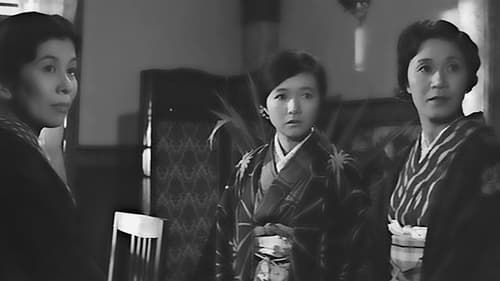
Fujiyama
Considered one of the finest late Naruses and a model of film biography, A Wanderer’s Notebook features remarkable performances by Hideko Takamine – Phillip Lopate calls it “probably her greatest performance” – and Kinuyo Tanaka as mother and daughter living from hand to mouth in Twenties Tokyo. Based on the life and career of Fumiko Hayashi, the novelist whose work Naruse adapted to the screen several times, A Wanderer’s Notebook traces her bitter struggle for literary recognition in the first half of the twentieth century – her affairs with feckless men, the jobs she took to survive (peddler, waitress, bar maid), and her arduous, often humiliating attempts to get published in a male-dominated culture.


In 1919, a group of Japanese immigrants arrives in Hawaii. Among them Yoshio Inoue and his wife Kishimo and Sumi, a young woman ready to get married soon. With the soil that is hard to work and the subtroipical climate, the immigrants have to cope with a hard life. But after years of hard work, Yoshio finds work as a teacher while his wife manages to open a small grocery store. But with the war around the corner, life becomes more and more complicated for the Japanese immigrants in a foreign country.
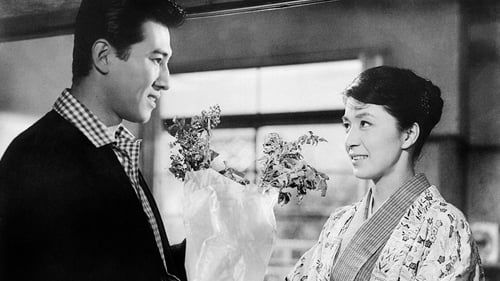
Jiro Ishikawa
Drama about the lives of the five daughters and daughter-in-law of a store owner.
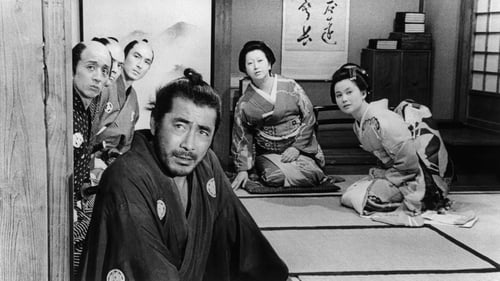
The Spy
Toshiro Mifune swaggers and snarls to brilliant comic effect in Kurosawa's tightly paced, beautifully composed "Sanjuro." In this companion piece and sequel to "Yojimbo," jaded samurai Sanjuro helps an idealistic group of young warriors weed out their clan's evil influences, and in the process turns their image of a proper samurai on its ear.

Based on the comic by Fuyahiko Okabe.
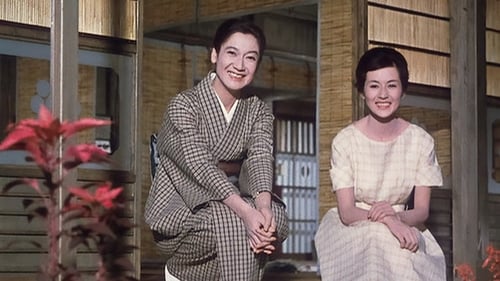
Hisao, Fumiko's husband
The family of an older man who runs a small sake brewery become concerned with his finances and his health after they discover him visiting an old mistress from his youth.

Japanese soldiers stranded in Manokwari, New Guinea, improvise a theater play to keep their spirits up and endure the extremely difficult conditions.

Based on the comic by Fuyuhiko Okabe.

Michio Katayama
The story is of two people. One is deaf, the other deaf and mute. They marry after meeting at a school reunion, and the film follows their trials and tribulations ... and joys.

A historical drama that depicts the touching beauty of world obsession and human love in the style of light comedy, in the center of which is a young man who has a master license menkyo kaiden in the art of swordsmanship, but weak against lies and women. A remake of Bungaku no Issue, shot by Sadao Yamanaka in 1933.

Lt. Koji Kitami is a navigator-bombardier in Japan's Naval Air Force. He participates in the Japanese raid on the U.S. Naval Base at Pearl Harbor in 1941 and is welcomed with pride in his hometown on his return. As Japan racks up victory after victory in the Pacific War, Kitami is caught up in the emotion of the time and fights courageously for the standard of Japanese honor. But his assuredness of his government's righteousness is shaken after the Japanese navy is defeated in the debacle of Midway.

Teiichiro Ishino
Suspense drama about a married salaryman whose affair with one of his co-workers is compromised when, returning from a clandestine meeting with his lover, he runs into a neighbor who is later accused of murder. Questioned by police about the neighbor, and blackmailed by his lover's neighbor, the salaryman's lies lead him on a path to destruction.

7th film in the President series and the first entry in color.

Fifth entry in the Company President Series.

A film about the life of Kiyoshi Yamashita, a Japanese painter with disabilities.
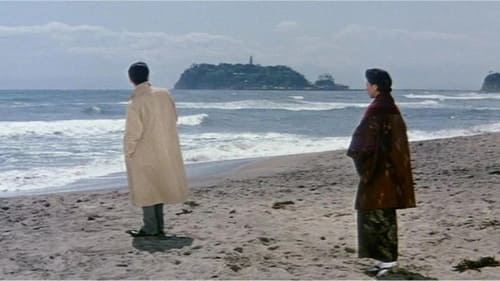
Hatsuji
A war widow with a young boy manages a farm with her bossy mother-in-law. When a reporter comes to interview her, the two begin an affair. He turns out to be married and won't leave his wife. Her older brother tries to marry off his children and hang on to/ extend his farm through an advantageous marriage in the face of threatened land confiscation and the desire of his children to get comfortable urban jobs instead of the backbreaking work in the paddy fields under parental control.

Tayama
Anzukko (Little Peach) is the daughter of a successful writer. She turns down each one of her suitors, until she marries a beginning writer named Ryokichi. Their life quickly sinks into despair.
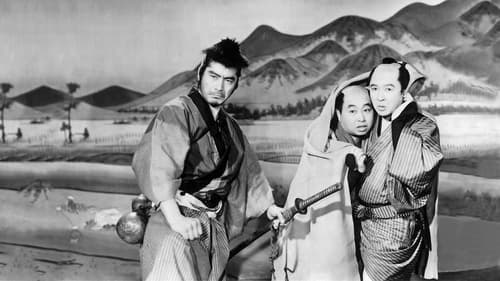
Kitahachi Kitariya
Two residents of Edo city Yaji and Kita make a journey to the temple of Ise, as part of a religious pilgrimage, but actually to get away from their wives for a little while. As they travel, they are constantly beset by complications involving women, mistaken identity, and misunderstood events. Another film adaptation of the famous novel Ikku Jippensha Footing It Along the Tokaido (Tokaidochu Hizakurige)

The fourth entry in the Company President Series

Comedy based on the writings of Ango Sakaguchi.

Melodrama about a young factory girl who "chooses riches over chastity".

The third instalment in the Shacho Series.

Shinji
Kiyoko (Takamine Hideko) and her husband want to open a coffee shop. She becomes increasingly close to the bank clerk (Mifune Toshiro) she's asked for a loan.

Night time teacher
An Ishiro Honda Film.

The president learns that the company's biggest stockholder is also a friend of his singing teacher and spies on his movements.
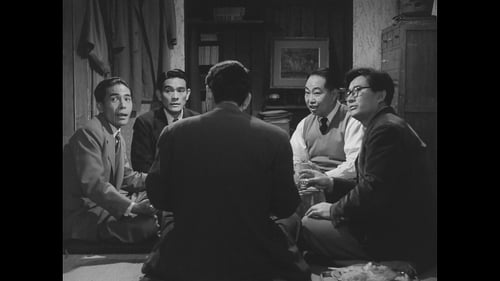
Nenkichi Imazato (the man next door)
A husband and wife's pet peeves and minor irritations escalate into major rifts and animosity.

A new third-class president wins an appointment thanks to his marriage with the former president's daughter.

Portmanteau film about young lovers.

The story of a group of young people who organise their own travelling symphony orchestra to provide music for people living in remote villages shortly after the war.

School Teacher Uenishi
Story about a poor Japanese woman living near an American army base who resorts to prostitution.

Heima Sakamoto
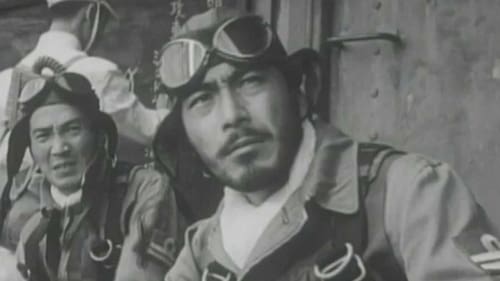
Staff Officer (uncredited)
Admiral Isoroku Yamamoto, a brilliant tactician, is a loyal subject of the emperor, despite his grave misgivings about leading Japan's navy into war with the United States. He opposes the attack on Pearl Harbor, but, overruled, he leads his forces to the best of his ability.

(uncredited)
A story of unhappy youths and the perils of lack of sex education.

A math teacher loses his job while falling in love with a local girl.

Shigekichi Hayakawa
A married couple looking for an apartment move in with the husband's co-worker, a widower. The husband becomes jealous of the widower and his wife.

Drunken man A

Shinichi Utsumi
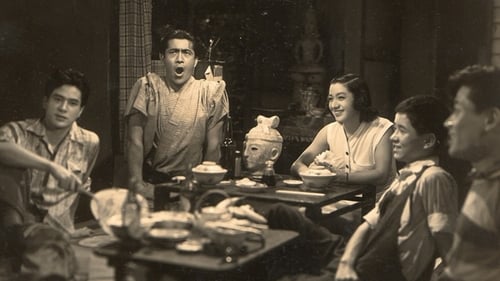
Following the Second World War, the lives of various people in a poverty-stricken area of Tokyo are entertwined. Pachinko parlor girls, shoeshine boys, a maker of costume jewelry, and a streetcorner artist all struggle to make their livings and to find happiness in difficult surroundings.

Buntaro, the president of a food trading company got tired of the day-to-day routine of life. The new secretary, Nobuko, suggested her "shacho-san" (the president) run away from the job. Nobuko took Buntaro to her home and introduced him to her own family as friend, "Sachio-san"...

Mr. Gan
Directorial debut by Umetsugu Inoue, the famous director of Musicals

Wakahara
1950s Japanese comedy.

Once an average and seemingly ordinary Tokyo girl, she suddenly finds herself as a TV star owing to her discovery by a casting company, which noticed photographs that her cousin had sent. When another actress falls ill she is given the role instead. Her first film is a success propelling the young actress to popularity, her own fans, money and a house. While everything looks dandy from the outside not all is well within the family however.

若原俊平
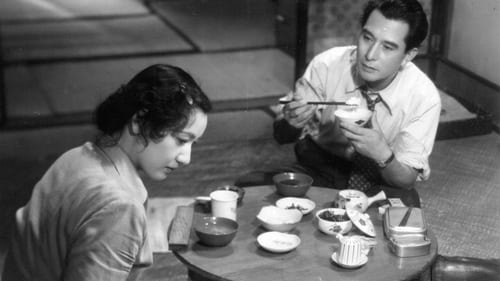
Shinzo Murata, Michiyo's brother
Michiyo lives in the small place Osaka and is not happy with her marriage, all she does is cook and clean for her husband.

Kenji
Japanese drama film.

In a small town, according to the homecoming of Professor Ishinaka, the youth culture group was overwhelmed to make a presentation for the summer festival, but because of lack of funds, she works part-time at the spectacle of a tour, a haunted house Especially. The ghost was a struggle amongst the people, it was a great success in filling the crowd, but in the circus hut next to it, Kenji who was supposed to have disappeared was pitiful.
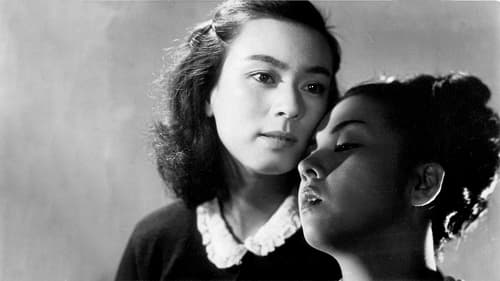
Clothes of Deception initiated Yoshimura’s most characteristic vein. This geisha story is often described as a loose remake of Mizoguchi’s pre-war masterpiece Sisters of Gion (1936), but this is inexact. Whereas in Mizoguchi’s study of two sisters, both women had been geisha, in Yoshimura’s film only Kimicho (Kyo Machiko) is, while her sister works in the Kyoto tourist office. Juxtaposing a traditional Kyoto profession with a modern one, Yoshimura shows how life in the old capital was changing in the wake of wider transformations in Japanese society.

Kunihiko Murai

Yûji Tokuyama

Ryôsuke Akashi
When a young woman is named as the prime suspect in a murder, her girlfriend and her girlfriend's boyfriend set out to prove her innocence. Their investigation leads them to an isolated, creepy house in the middle of nowhere, where sinister goings-on abound.

Family Blossoms

Hassan
A band of guerrillas fight against occupying British forces in Malaya.
